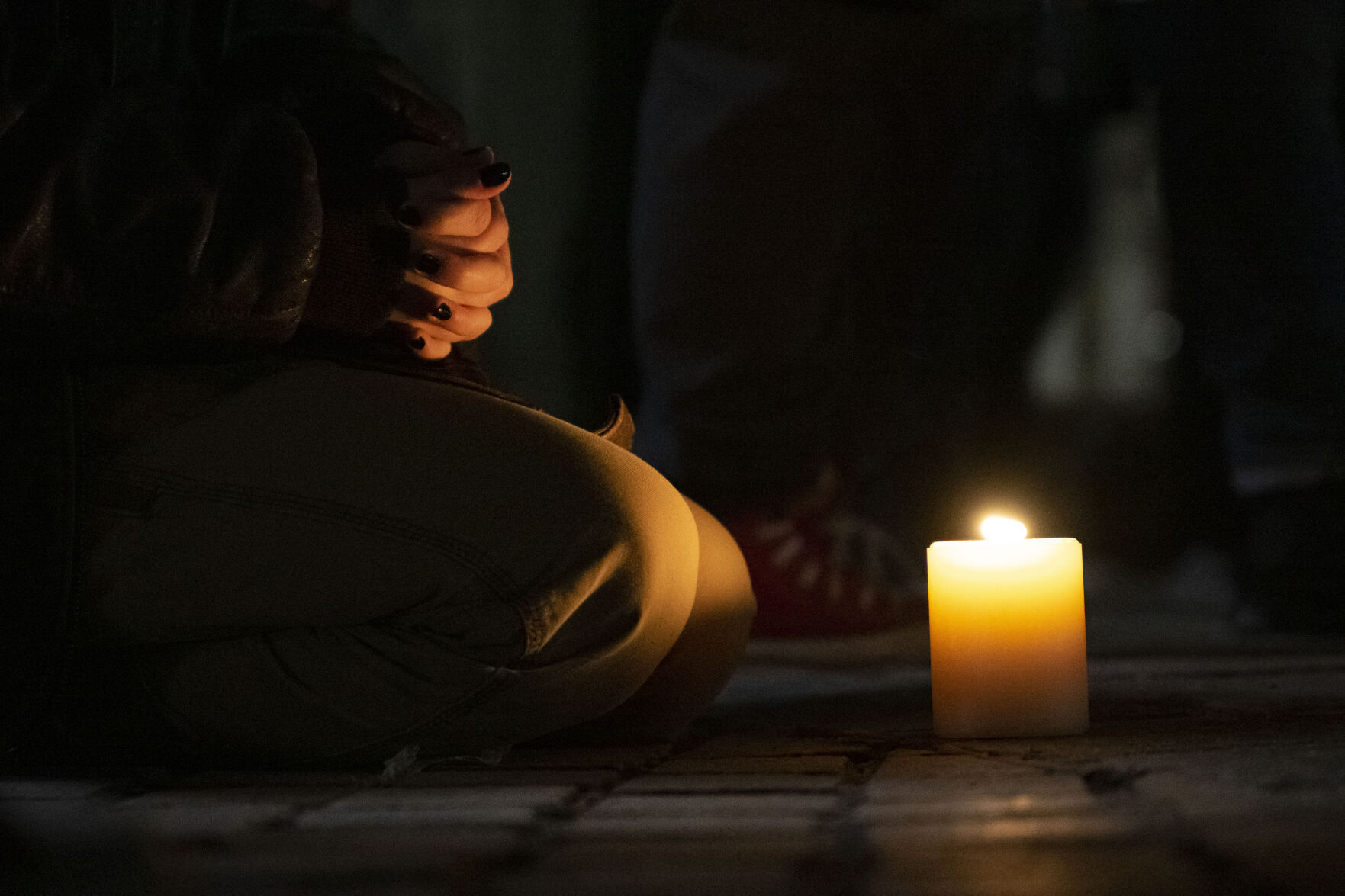Club Q attack: What we know and don’t know

A week and a half after Colorado Springs’ Club Q shooting, many rumors and hundreds of local and national media reports can be confusing.
The following information was compiled by The Gazette through police reports, court appearances, and conversations with witnesses.
What do we know about the suspect?
Anderson Lee Aldrich, 22, was born under the name Nicholas Franklin Brink and legally changed the name in 2016. That was after enduring a troubled childhood that may have included a case of online bullying. Aldrich’s parents divorced when the suspect was a toddler and both have arrest records. Defense attorneys for Aldrich submitted a court filing stating the suspect identifies as nonbinary.
Club Q victims’ funeral details announced
“They use they-them pronouns, and for the purposes of all formal filings, will be addressed as Mx. Aldrich,” according to a court document.
Aldrich had a previous run-in with law enforcement in Colorado Springs. Pamela Pullen, the suspect’s grandmother, called police last year and reported Aldrich was making a bomb in the basement of their El Paso County home. She told police: “He was going to be the next mass killer and has been collecting ammunition,” according to the arrest affidavit.
During the incident, Aldrich left the grandparents’ home and drove to where Aldrich’s mother, Laura Voepel, was renting a room nearby.
After almost three hours of negotiation, Aldrich was arrested and booked into the El Paso County jail on two counts of felony menacing and three counts of first-degree kidnapping, according to a 2021 news release from the Sheriff’s Office. But it is not clear how the bomb threat case was resolved; the 4th District attorney’s office said no formal charges were pursued in the case.
Has the suspect been formally charged?
No. Aldrich faces five counts of first-degree murder and five counts of committing those crimes as part of a bias attack. On Nov. 24, Judge Michael McHenry ordered the suspect held without bail. Aldrich will be formally charged at the next court appearance, scheduled Dec. 6 in the 4th Judicial District/El Paso County.
Club Q shooting suspect’s mom faces charges, documents show
What was the suspect’s motive?
Authorities have declined to characterize any potential motives beyond the preliminary charges.
Immediately after the shooting, the dominant narrative was that an environment of hateful rhetoric directed at LGBTQIA+ people might have fueled the attack. After defense attorneys said the suspect identified as nonbinary, the narrative appears to have shifted to include speculation the suspect may have been motivated by “self-hatred” based on their LGBTQIA+ identity.
Noting the details that emerged about the suspect’s life, one expert speculated that gender identity doesn’t matter as much as the apparently troubled childhood.
What do we know about the suspect’s family background?
Over recent days, a complicated web of details have emerged regarding the history of the accused shooter’s family members.
Anderson Aldrich was born Nicholas Franklin Brink on May 20, 2000, in San Diego to Laura and Aaron Brink. Just over a year later, the couple divorced and Laura retook her maiden name. In 2007, she had another child and moved with her mother and stepfather to Denver, and then to San Antonio. There, just weeks before their 16th birthday, the suspect changed their name to Anderson Lee Aldrich. On the official court forms for the name change, Aldrich’s grandmother, Pamela Pullen, claimed legal guardianship.
Police complete scene investigation of Club Q shooting, update number of victims
Reports show the suspect’s upbringing had been marked by a biological father with a criminal history who dabbled in drugs and worked in the porn industry and a mother with multiple arrests in California and one in Texas, for arson.
According to a relative, the suspect’s primary caretaker while was growing up was their maternal grandmother.
The family bought a house in unincorporated El Paso County in April 2019 and the address records show that though Aldrich’s maternal grandparents moved to Florida in summer 2021, the suspect stayed behind in Colorado and appeared to be living with Laura Voepel.
What was the suspect’s relationship with their mom?
Hours before the suspected shooter walked into the front door of Club Q and started shooting, a desperate post appeared on Laura Voepel’s Facebook page. It started: “My son is missing.”
The post explained that she and Aldrich had made plans to go to a 10 p.m. movie and that she had been dressed and ready to go for two hours. The post indicated that Voepel, 45, couldn’t search for the 22-year-old herself because “I don’t have wheels just yet.” And then explained, “He took MY PHONE and my debit card” adding “If he was trying to avoid me (not likely) he wouldn’t have told me to get ready to have the best night ever!”
Hours after the shooting, Colorado Springs police detained and ticketed Laura Voepel, on charges of resisting arrest and disorderly conduct alleging unreasonable noise, online court records show. Voepel was detained for refusing to stop yelling in an apartment complex, according to police records. She then “became combative” with officers trying to take her into custody.
Who are the victims?
The Club Q shooting claimed the lives of three patrons and two employees. As of Nov. 28, the five victims have been identified by police as Derrick Rump, Daniel Aston, Kelly Loving, Ashley Paugh and Raymond Green Vance.
Police also reported that 17 people were injured from a gunshot wound, five more were injured from something other than a bullet, and 12 were victims with no visible injuries.
On Tuesday, Colorado Springs police announced that families of four of the five have made funeral plans. Aston’s family said it is still working on a memorial. Some of the funerals are being held out of state, where victims grew up, and other memorials will take place in Colorado. Some, like Paugh’s, are private and small. In contrast, Vance’s family announced two public viewings during the week and added a dove release event Saturday.
Police said they are still working to identify the dozens of people believed to be inside the building at the time of the shooting so they can be connected to resources, like victim advocates, and help create a complete picture of events.
Police said they are trying to find victims by using cellphone and credit card transaction records and by asking people to come forward.
Gender identity of suspect in Club Q shooting scrambles narrative
Where does the investigation stand?
Monday, police released an update saying they had completed the investigation at the scene of the Club Q shooting. Because all information related to the incident has been sealed by an El Paso County judge, the El Paso County Sheriff’s Office explained to The Gazette that nothing will be released until the courts are ready for the public to access police reports, body-worn camera footage and 911 calls that led up to the shooting.
What weapons were used in the mass shooting?
There has been no official word from law enforcement on exactly which, or how many, weapons were used in the lone shooter’s attack. But law enforcement said the suspect fired an AR-15-style rifle.
Sunday, on CBS News’ “Face the Nation,” Gov. Jared Polis was asked about the weapons and he referred to media reports that said the alleged shooter used an unregistered “ghost gun.” The family has confirmed with The Gazette that Aldrich had a 3D printer and reportedly was working on making a ghost gun, but it is unknown what make of gun that may have been.
U.S. Army veteran Richard Fierro, one of the heroes who tackled the suspect, said that he struck the shooter with their own handgun.
Did the district attorney refuse to pursue earlier charges against the suspect?
We don’t know. Plenty of speculation exists about what 4th District Attorney Michael Allen did or didn’t do, what the suspect’s family did or didn’t do – or even what the judge who might have heard the case involving the bomb threat allegedly made by the suspect did or didn’t do.
Apparently, no formal charges were pursued, and the records were sealed. That was likely the result of a state law that automatically prevents the retrieval of criminal records under specific conditions, notably when a case is entirely dismissed.
Why wasn’t a “red-flag” order pursued against the suspect in the earlier incident?
We don’t know. Apparently, no red-flag order was pursued against Aldrich as a result of the bomb threat incident. Under Colorado law, a family or household member or law enforcement officer may petition the court for what’s called a temporary extreme-risk protection order against a person who poses an imminent threat to themselves or others “by having in his or her custody or control a firearm or by purchasing, possessing, or receiving a firearm.”
What will happen to Club Q?
On Nov. 25, police released the club building back to the Club Q owners. It is unknown whether it will reopen.
How to help
The Colorado Healing Fund at www.coloradohealingfund.org has started an official fundraiser to benefit victims and families impacted by the shooting. Two GoFundMe pages have been launched to raise funds for medical and funeral expenses for the victims and families. One fundraiser has raised nearly $93,000 of a $100,000 goal as of Tuesday afternoon, and a second fundraiser has exceeded $807,000.













